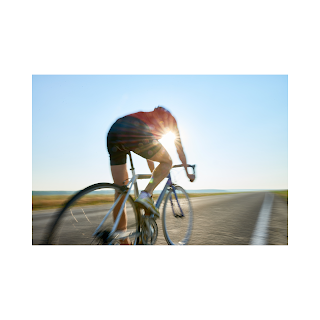How to Improve Your Cycling Performance: A Complete Guide
How to Improve Your Cycling Performance: A Complete Guide
Cycling is not only a fantastic form of exercise but also a lifestyle for many. Whether you're a casual rider or training for an event, improving your cycling performance takes more than just time in the saddle. It requires structured training, proper nutrition, the right gear, and adequate recovery. Here's how to take your performance to the next level.
1. Structure Your Training Plan
Why a Training Plan Matters
Having a training plan provides structure, purpose, and progression to your rides. Without one, your performance may plateau.
Key Elements of a Training Plan:
Endurance Rides: Build aerobic base with longer, steady-paced rides.
Interval Training: Boost power and speed with structured bursts of high intensity.
Strength Training: Off-bike exercises like squats, lunges, and core work improve performance and reduce injury risk.
Tips:
Set specific, achievable goals.
Mix workouts to avoid stagnation.
Track your progress and adjust as needed.
Rest is crucial. Schedule recovery days into your plan.
2. Dial in Your Nutrition
Fueling for Performance
Cycling demands energy, and proper fueling makes a huge difference.
Before Your Ride:
Eat a balanced meal 2–3 hours beforehand with complex carbs and protein.
During Your Ride:
Consume 30–60g of carbs per hour via energy bars, gels, or drinks.
After Your Ride:
Eat a protein-rich snack or shake within 30–60 minutes to aid recovery.
Hydration:
Drink water consistently before, during, and after rides.
Use electrolyte drinks for longer or hot-weather rides.
Extras:
Healthy fats like avocados and nuts can aid endurance.
Caffeine can boost focus and stamina in moderate doses.
3. Get a Proper Bike Fit
Why It Matters:
A good bike fit prevents pain, improves efficiency, and reduces injury risk.
Professional bike fitting optimizes saddle height, handlebar reach, and pedal stroke.
When to Reassess:
If you’ve lost or gained weight, changed shoes, or developed new discomfort.
4. Invest in Quality Equipment
Your Bike:
Choose a well-fitted bike for your riding goals.
Lightweight frames and responsive gearing can enhance performance.
Cycling Shoes:
Clip-in shoes increase pedal efficiency and reduce fatigue.
Apparel:
Breathable, moisture-wicking gear improves comfort.
Helmet:
A snug, certified helmet is non-negotiable for safety.
Wheels & Tires:
High-quality wheels and proper tire pressure reduce rolling resistance and increase speed.
5. Incorporate Cross-Training
Why It Works:
Prevents overuse injuries.
Builds muscles not typically engaged in cycling.
Keeps training fun and engaging.
Recommended Activities:
Strength training (especially legs and core)
Swimming for cardio and joint relief
Yoga or Pilates for flexibility
Hiking or walking for recovery days
6. Prioritize Rest and Recovery
Recovery Is Training, Too
Muscle repair, mental refreshment, and performance gains happen during rest.
Tips:
Schedule 1–2 rest days weekly.
Get 7–9 hours of sleep per night.
Incorporate active recovery like easy spins, foam rolling, or stretching.
Eat nutrient-rich foods to speed up healing and reduce inflammation.
Final Thoughts
Improving cycling performance is a combination of smart training, fueling your body correctly, using the right gear, and giving yourself time to rest. It’s about being consistent, listening to your body, and constantly learning. Whether you ride for fitness, fun, or competition, these tips will help you go farther, faster, and with more joy.



Comments
Post a Comment